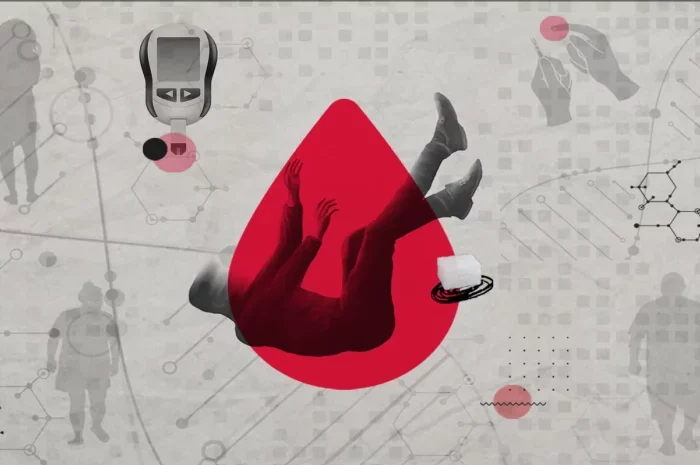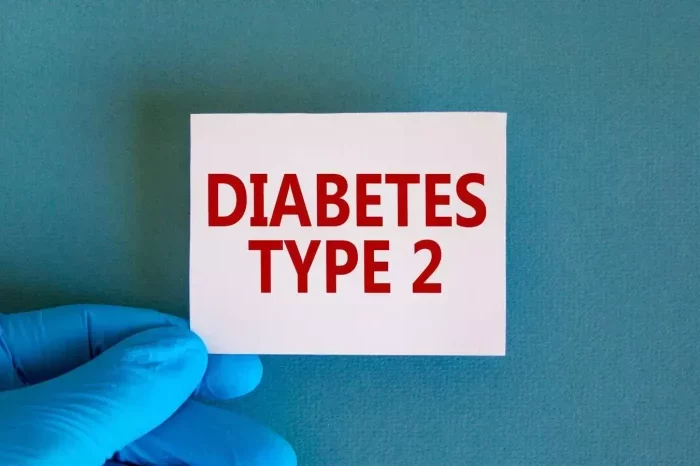Blood glucose levels are a key indicator of your body’s health, especially in relation to how well it manages sugar. Regular monitoring of glucose levels through blood tests is crucial for diagnosing, managing, and preventing diabetes and other related conditions. This article delves into the meaning of glucose levels in a blood test, the types of tests available, what the results signify, and how they can impact your health.
What Is Blood Glucose?
Blood glucose, often referred to as blood sugar, is the amount of sugar present in your bloodstream at any given time. Glucose is the primary source of energy for your body’s cells and is derived mainly from the foods you eat, particularly carbohydrates. After you consume food, your digestive system breaks down carbohydrates into glucose, which then enters your bloodstream.
The hormone insulin, produced by the pancreas, plays a critical role in regulating blood glucose levels. Insulin helps cells absorb glucose from the blood, which they then use for energy. When insulin function is impaired, as in diabetes, blood glucose levels can become abnormally high, leading to a range of health complications.
Types of Blood Glucose Tests
There are several types of blood glucose tests, each serving different purposes. These tests can measure your blood sugar levels at a specific point in time or over a period, providing a comprehensive picture of your glucose management. The most common blood glucose tests include:
1. Fasting Blood Glucose Test
The fasting blood glucose test measures your blood sugar level after an overnight fast (usually 8-12 hours). This test is often the first step in diagnosing diabetes or prediabetes.
Normal Range: 70-99 mg/dL (3.9-5.5 mmol/L)
Prediabetes: 100-125 mg/dL (5.6-6.9 mmol/L)
Diabetes: 126 mg/dL (7.0 mmol/L) or higher
2. Random Blood Glucose Test
A random blood glucose test measures your blood sugar level at any given time, regardless of when you last ate. This test is useful for a quick assessment but is less precise than other tests because glucose levels fluctuate throughout the day.
Normal Range: 70-140 mg/dL (3.9-7.8 mmol/L), but can vary depending on food intake.
3. Oral Glucose Tolerance Test (OGTT)
The OGTT measures how your body processes glucose over time. After fasting, you’ll drink a sugary solution, and your blood glucose levels will be measured at intervals over the next two hours. This test is particularly useful for diagnosing gestational diabetes and prediabetes.
Normal Range (2 hours after glucose intake): Less than 140 mg/dL (7.8 mmol/L)
Prediabetes: 140-199 mg/dL (7.8-11.0 mmol/L)
Diabetes: 200 mg/dL (11.1 mmol/L) or higher
4. Hemoglobin A1c (HbA1c) Test
The HbA1c test provides an average of your blood glucose levels over the past 2-3 months by measuring the percentage of hemoglobin (a protein in red blood cells) that is coated with sugar (glycated). This test is commonly used to diagnose and monitor diabetes.
Normal Range: Below 5.7%
Prediabetes: 5.7%-6.4%
Diabetes: 6.5% or higher
5. Continuous Glucose Monitoring (CGM)
CGM systems measure glucose levels continuously throughout the day and night via a sensor placed under the skin. This method is particularly beneficial for people with diabetes who need to closely monitor fluctuations in their blood sugar levels.
Typical Range: The CGM provides a dynamic range, showing trends over time rather than single-point measurements.
What Do Blood Glucose Levels Mean?
Blood glucose levels are a critical measure of your metabolic health. They reflect how well your body manages sugar and can indicate whether you’re at risk for, or currently have, diabetes or other glucose-related conditions.
1. Normal Blood Glucose Levels
For most healthy individuals, fasting blood glucose levels typically range between 70-99 mg/dL (3.9-5.5 mmol/L). After eating, blood sugar levels may rise but usually do not exceed 140 mg/dL (7.8 mmol/L). Maintaining these levels indicates that your body is effectively processing glucose, balancing energy needs, and preventing excessive sugar accumulation in the bloodstream.
2. Prediabetes
Prediabetes is a condition where blood glucose levels are higher than normal but not yet high enough to be classified as diabetes. Prediabetes is a significant risk factor for developing Type 2 diabetes, heart disease, and stroke. If diagnosed with prediabetes, lifestyle changes such as diet, exercise, and weight loss can often prevent or delay the onset of diabetes.
Fasting Glucose Levels: 100-125 mg/dL (5.6-6.9 mmol/L)
HbA1c Levels: 5.7%-6.4%
3. Diabetes
Diabetes is a chronic condition characterized by persistently high blood glucose levels due to the body’s inability to produce enough insulin (Type 1 diabetes) or use insulin effectively (Type 2 diabetes). High blood sugar levels over time can lead to serious health complications, including cardiovascular disease, nerve damage, kidney disease, and vision problems.
Fasting Glucose Levels: 126 mg/dL (7.0 mmol/L) or higher
Random Glucose Levels: 200 mg/dL (11.1 mmol/L) or higher
HbA1c Levels: 6.5% or higher
4. Hypoglycemia
Hypoglycemia occurs when blood glucose levels drop too low, typically below 70 mg/dL (3.9 mmol/L). This can happen if you take too much insulin or other glucose-lowering medications, skip meals, exercise excessively, or consume alcohol without eating. Symptoms of hypoglycemia include shakiness, sweating, confusion, irritability, and, in severe cases, loss of consciousness.
Critical Level: Below 70 mg/dL (3.9 mmol/L)
5. Hyperglycemia
Hyperglycemia refers to elevated blood glucose levels, which can occur in people with diabetes if they do not manage their condition effectively. Chronic hyperglycemia can lead to complications affecting the eyes, kidneys, nerves, and cardiovascular system.
Critical Level: Typically, anything above 180 mg/dL (10.0 mmol/L) after meals or 140 mg/dL (7.8 mmol/L) when fasting may indicate hyperglycemia.
Factors Influencing Blood Glucose Levels
Several factors can influence your blood glucose levels, making it essential to understand how various elements of your lifestyle and health condition interact with your blood sugar.
1. Diet
The type and amount of food you eat have a direct impact on your blood glucose levels. Carbohydrates, in particular, are the primary macronutrient affecting blood sugar. Foods high in refined sugars and simple carbs can cause rapid spikes in glucose, while fiber-rich whole grains, vegetables, and proteins lead to a more gradual increase.
2. Physical Activity
Exercise helps lower blood glucose levels by increasing insulin sensitivity and allowing muscles to use glucose for energy. Regular physical activity is an effective way to manage blood sugar and prevent the onset of Type 2 diabetes.
3. Medications
For people with diabetes, medications such as insulin and oral hypoglycemic agents are crucial in managing blood glucose levels. However, incorrect dosing or timing can lead to hypoglycemia or hyperglycemia.
4. Stress
Stress hormones such as cortisol can cause an increase in blood glucose levels. Chronic stress can therefore contribute to poor blood sugar control, particularly in people with diabetes.
5. Illness
Acute illnesses such as infections can cause blood glucose levels to rise as the body releases stress hormones to combat the illness. This effect is particularly pronounced in individuals with diabetes.
6. Sleep
Poor sleep quality or lack of sleep can negatively impact blood sugar control by increasing insulin resistance and promoting the release of stress hormones.
7. Alcohol
Alcohol consumption can lead to fluctuations in blood glucose levels. While moderate alcohol intake might not cause significant issues, excessive drinking can lead to both hypoglycemia and hyperglycemia, depending on the circumstances.
Why Monitoring Blood Glucose Levels Matters
Monitoring blood glucose levels is essential for diagnosing diabetes, managing the condition, and preventing complications. Regular testing allows you to:
1. Diagnose Diabetes and Prediabetes
Early detection of elevated blood glucose levels is crucial for diagnosing diabetes and prediabetes. With early intervention, lifestyle changes and medication can prevent or delay the progression of diabetes.
2. Manage Diabetes Effectively
For those with diabetes, regular blood glucose monitoring is key to managing the condition. It helps in making informed decisions about diet, exercise, and medication. By keeping glucose levels within the target range, diabetics can reduce the risk of complications such as cardiovascular disease, neuropathy, and retinopathy.
3. Prevent Hypoglycemia and Hyperglycemia
Frequent blood glucose testing can help prevent dangerous swings in blood sugar levels. By identifying patterns and triggers, you can take proactive steps to avoid hypoglycemia (low blood sugar) and hyperglycemia (high blood sugar), both of which can be life-threatening if not managed promptly.
4. Adjust Treatment Plans
Monitoring glucose levels over time allows healthcare providers to assess the effectiveness of treatment plans, including medication, diet, and exercise routines. Adjustments can be made to better control blood sugar levels and improve overall health outcomes.
5. Empower Patients
Understanding and regularly checking blood glucose levels empowers patients to take control of their health. It provides immediate feedback on how lifestyle choices, medications, and other factors impact blood sugar, fostering better self-management.
See also: What Blood Sugar Level Is Insulin Required
Conclusion
Blood glucose levels are a vital indicator of metabolic health, and understanding what they mean in a blood test is crucial for diagnosing, managing, and preventing diabetes and its complications. Whether you are monitoring your levels as part of routine health care or managing a chronic condition like diabetes, knowing the significance of your glucose levels can help you make informed decisions about your health. Regular monitoring, combined with lifestyle changes and, if necessary, medication, can help maintain healthy blood glucose levels, ultimately leading to better overall health and a reduced risk of diabetes-related complications.
Related topics:
Is There a Way to Check Blood Sugar Without Needles?
























